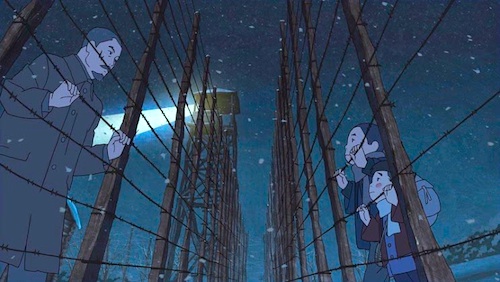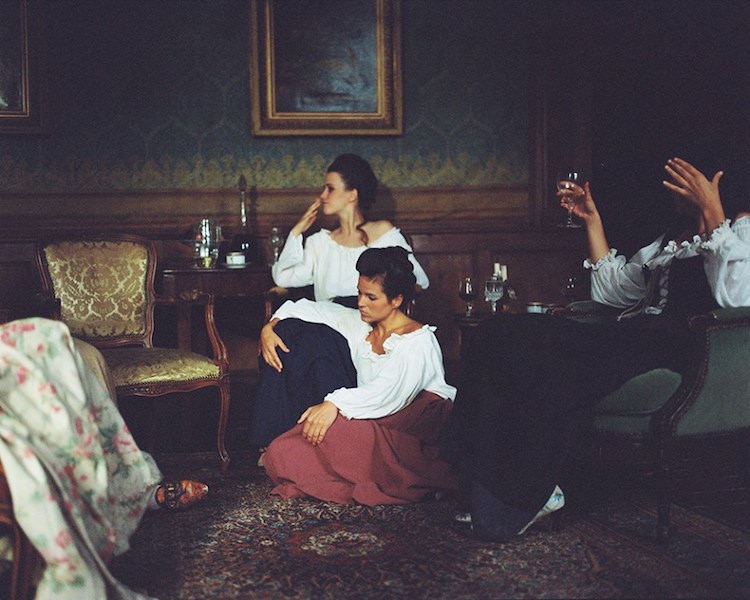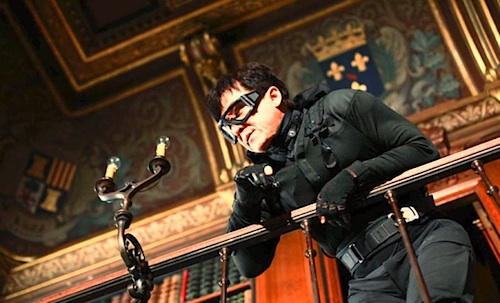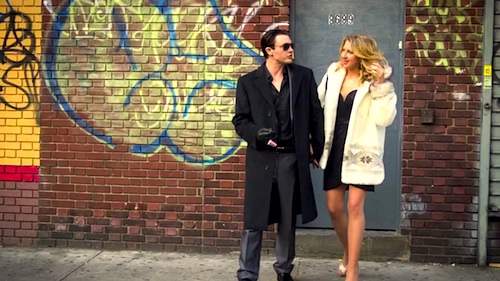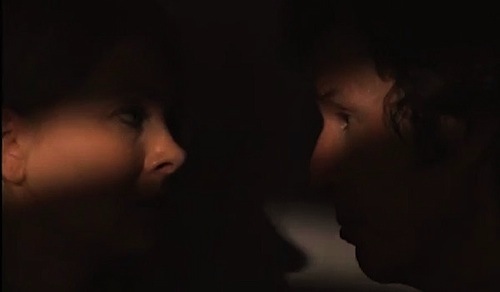
By Joe Bendel. Prepare to have all your suspicions about the New Age mindset confirmed. We might be poised on the brink of the Age of Aquarius, the Harmonic Convergence, or whatever, but it comes bundled with some of the stiffest performances and clunky dialogue you will ever feast your previously jaded eyes and ears upon. Self-financed by writer-director-producer-lead actor-craft services Neil Breen, Fateful Finding blew into town for a weekend of ‘round midnight screenings at the Landmark Sunshine. Let the “magic” commence.
Any attempts to describe Fateful must be approximate. The link between cause and effect is often rather tenuous in this world and the exposition is more confounding than explanatory. We can say with certainty, eight year-old Dylan and Leah were once inseparable. On the last day of their final summer together, they discover a magic rock that he will keep with him as a talisman. We know it was a “magical day” because that is what she wrote in her diary, underlined multiple times for effect. Shortly thereafter, her parents whisked her away, perhaps because they were concerned about that creepy Dylan kid.
Flashing forward, Dylan is now a successful novelist with a devoted wife, but he never got over Leah. However, when a Rolls Royce plows into him, spraying red food coloring everywhere, Dylan makes a remarkably speedy recovery thanks to that cosmic stone. Finding himself in a spiritual crisis, Dylan chucks his writing career, resolving to use his hacker skills to expose all the corrupt collusion between the government and big business. You see, it’s actually believable – because he has his masters in computer science.
Meanwhile, he also facilitates his wife Emily’s addiction to the meds he refuses to take, perhaps because she read the script and figured she would need pharmaceutical help to get through the shoot. Eventually, he completely loses interest in Emily once he realizes the physician consulting on his case is none other than his long lost love, Leah, who did not recognize him under the Invisible Man bandages and evidently never bothered to read his chart.
Right, so there is some kind of plot afoot to get Dylan as well as some kind of paranormal agency at work, but you would hardly know it, because Breen devotes far more time to the marital travails of Dylan’s next door neighbors, Amy and Jim. As far as the shadowy conspiracy goes, it seems to consist solely of an underachieving henchman, who conveniently leaves his written instruction behind at the scene of the crime.
Indeed, Breen has a maddening habit of getting bogged down in the most mundane details at the expense of his big picture concept. Occasionally, we see visions of Dylan leafing through a big glowing mystical book (probably an old heirloom dictionary bought at a garage sale), but he painstakingly establishes whether or not Amy wants to try the wine at Dylan’s dinner party.
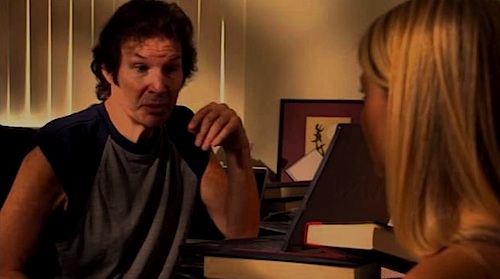
Be that as it may, just like fellow cult favorites The Room and Birdemic, it is sheer folly to apply any sort of rational critical standard to Fateful. These are passion projects that come from an indescribably bizarre aesthetic plane of existence. Logic is completely out the window from the get-go in nearly all respects, starting with the fact Breen looks about twice as old as the adult Leah. More importantly, there is able space for vocal audiences to insert their own commentary (such is the advantage of a talky film with frequent awkward pauses).
Frankly, some of Breen’s choices will mystify even experienced screen-talking midnight movie patrons. Still, it amply lives up to the singular reputation it developed on the festival circuit. Recommended for those who appreciate a healthy dose of communal cinematic lunacy, Fateful Findings screened this weekend in New York at the Landmark Sunshine.
Posted on March 31st, 2014 at 9:07am.
